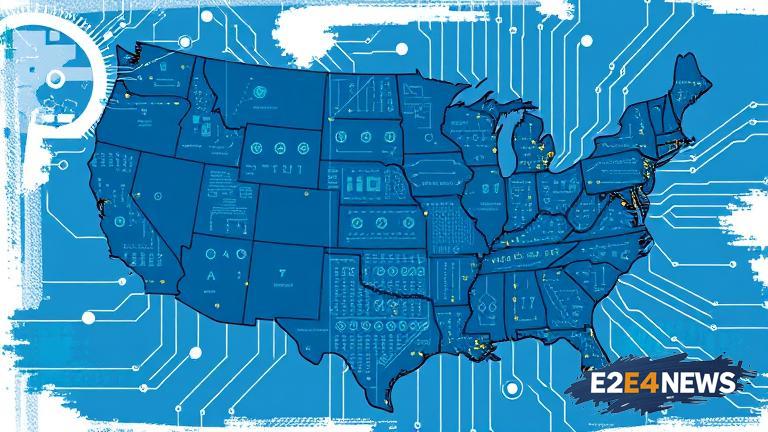The White House has unveiled a comprehensive AI Action Plan, marking a significant milestone in the US government’s efforts to promote the development and deployment of artificial intelligence. The plan, which is the result of a collaborative effort between various federal agencies, aims to foster innovation, drive economic growth, and ensure that the benefits of AI are shared by all. The plan comprises several key components, including the development of a national AI strategy, the establishment of a federal AI research and development program, and the creation of a new AI-focused office within the White House. The plan also emphasizes the need for responsible AI development, with a focus on ensuring that AI systems are transparent, explainable, and fair. To achieve this, the plan calls for the development of new standards and guidelines for AI development, as well as increased investment in AI research and development. The plan also recognizes the potential risks associated with AI, including job displacement, bias, and cybersecurity threats. To mitigate these risks, the plan proposes a range of measures, including the development of new education and training programs, the creation of a new AI-focused workforce development initiative, and the establishment of a national AI safety and security program. The plan also emphasizes the importance of international cooperation on AI, with a focus on promoting global standards and guidelines for AI development. The US government has also announced plans to establish a new AI-focused diplomatic initiative, aimed at promoting US leadership in AI and fostering collaboration with other countries. The plan has been welcomed by industry leaders and experts, who see it as a major step forward in promoting the development and deployment of AI. However, some critics have expressed concerns about the plan’s potential impact on jobs and the need for more robust measures to address the risks associated with AI. Despite these concerns, the plan is widely seen as a significant step forward in promoting the development and deployment of AI, and is likely to have a major impact on the US economy and society in the years to come. The plan’s emphasis on responsible AI development and its recognition of the potential risks associated with AI are particularly noteworthy, and reflect a growing recognition of the need for a more nuanced and balanced approach to AI development. The plan’s focus on international cooperation is also significant, and reflects a growing recognition of the need for global standards and guidelines for AI development. The US government’s decision to establish a new AI-focused office within the White House is also a significant development, and reflects a growing recognition of the need for a more coordinated and strategic approach to AI development. Overall, the AI Action Plan is a major step forward in promoting the development and deployment of AI, and is likely to have a major impact on the US economy and society in the years to come. The plan’s emphasis on responsible AI development, international cooperation, and workforce development are particularly noteworthy, and reflect a growing recognition of the need for a more nuanced and balanced approach to AI development. As the US government moves forward with implementing the plan, it will be important to monitor its progress and impact, and to ensure that the benefits of AI are shared by all. The plan’s success will depend on a range of factors, including the level of investment in AI research and development, the effectiveness of the new AI-focused office, and the ability of the US government to promote international cooperation on AI. Despite the challenges ahead, the AI Action Plan is a significant step forward in promoting the development and deployment of AI, and is likely to have a major impact on the US economy and society in the years to come.
